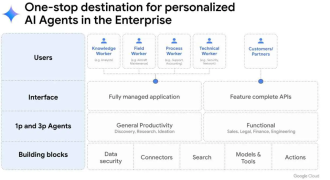
Last week the Wall Street Journal published an article that raised an eyebrow for me. The article, titled “Computer-Science Majors Graduate Into a World of Fewer Opportunities” took me back to a neighborhood barbecue last summer. A neighbor of mine was gushing to me that her son had decided to embark on a computer science major. While I was happy for her—and for her son—I also said to her that he should not just accept the standard CS curriculum, but should also do whatever he can to learn about AI now. At first glance, I thought the WSJ article was going to reinforce my point.
But fortunately, authors Katherine Bindley, Corrie Driebusch, and Lindsay Ellis decided to give the situation a bit more thought. While mentioning AI as one factor affecting the CS job market, they also pointed to the current state of the economy and a significant increase in the supply of technology graduates over the years. I’d also add the giant slowdown in the professional service industry as a contributing factor. And I’d be interested to hear the journalists’ views on the impact of globalization, because tech skillsets in many countries’ workforces have exploded in line with sustained investment from domestic and foreign tech companies.
Insights from Someone Who’s Been through Too Many Tech Cycles to Count
While the authors point out a very real issue, it does raise the question: What should these newly minted grads do? Here are some ideas from a person who was also told to “study computers” decades ago.
- AI is not your enemy; it is your friend. It is easy to interpret the flood of new AI-based development tools as a bad thing for your career, but it’s not. Coding is only one aspect of development work, and while AI definitely accelerates certain tasks, it can’t replace your overall base of skills. That said, the more you know about this emerging area of technology, the better. AI is here to stay, but sadly your four-year degree may not have prepared you to make the most of it. My advice: Take some online classes while you job-hunt.
- Demographics are on your side. The economy may be in the doldrums, but there are also thousands of people retiring every day. In the short term, the economic headwinds are challenging organizations on two fronts. Many in the older generation want to retire, but the current economy may be holding them back. And expense-strapped companies are not always willing to hire young people with smaller skillsets and invest in knowledge transfer. That said, organizations don’t have a lot of choices in the long term. Hopefully, the economy will improve and IT will start adding more jobs more rapidly.
- All companies are becoming tech companies to some degree. If you want to see some of the coolest tech out there, go to a John Deere dealership and ask to see their agriculture equipment. (While you’re at it, check out this writeup from my colleague Will Townsend about his recent visit to a Deere facility.) Or walk into any factory or warehouse and see how much technology is being used. You may not be able to get that dream job at Google, but the reach of software and other technology extends to all industries now. These industries are starving for smart young tech-savvy people to make their offerings more competitive. Finance, healthcare, manufacturing—they all need you.
- Embrace low-code, no-code, and BI tools—and learn the business. I understand if you want to dive into the hard-core technical stuff. But one thing you probably did not learn in your CS courses is that people on the front lines of the business sometimes just need a simple tool to help them get by. Low-code and no-code projects on the line-of-business side of things have high value and visibility. Additionally, there is often less budgetary pressure in the revenue-generating areas of a business. That typically means more jobs and more willingness to try newer technologies. In fact, most disruptive technology changes in the past 30 or 40 years have started outside of IT. So don’t look down on a business analyst job. You will learn a ton, get experience solving practical business problems, and have a more viable resume in the long run.
A Career in Tech Requires Playing the Long Game
Kudos to the WSJ writers for a great article that raised important points about the job market for developers and other young tech pros. And congratulations to all the grads out there—your hard work will pay off. Your prospects may not look wonderful at the moment, but this will pass. And never stop learning!






















































































